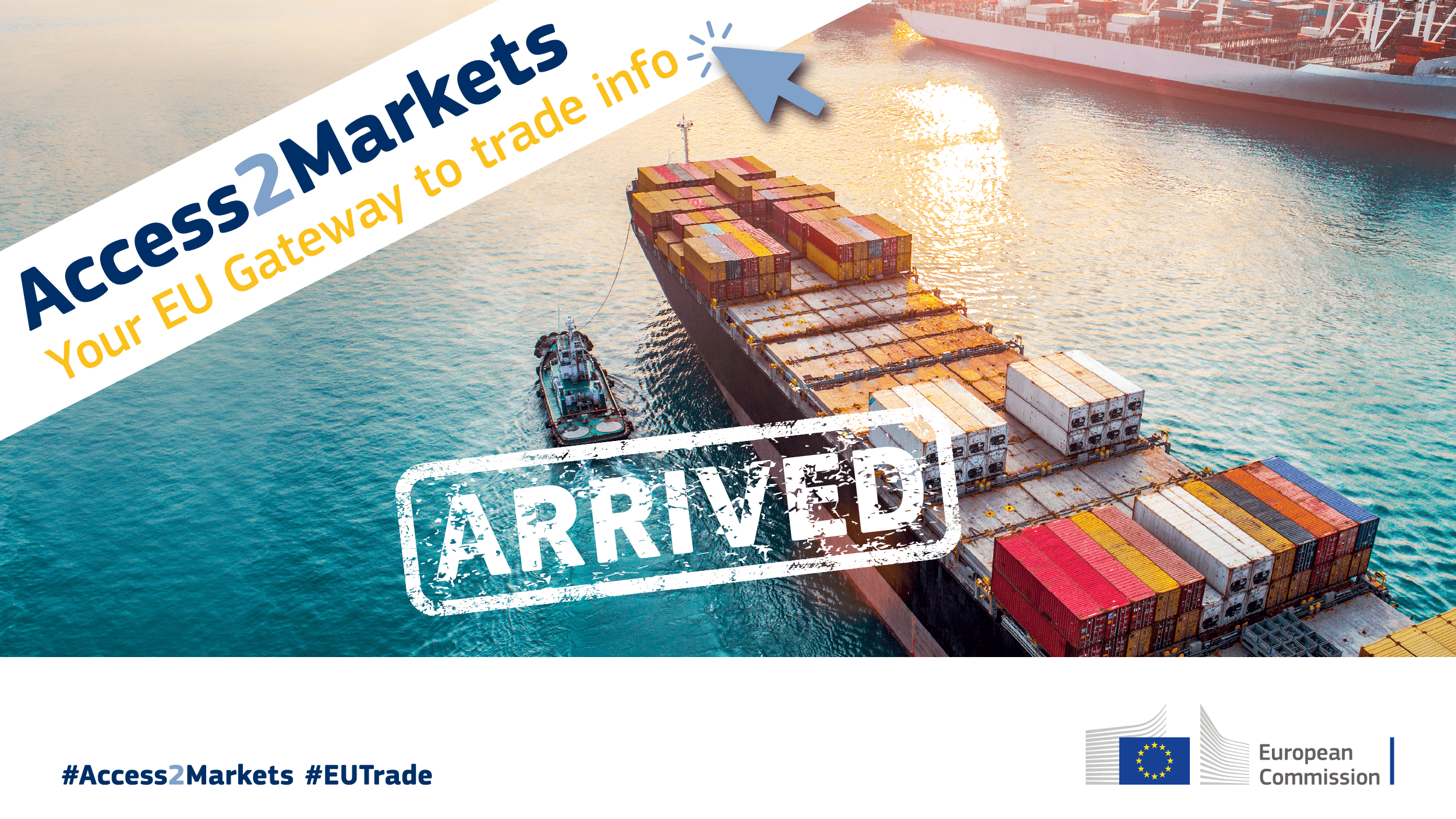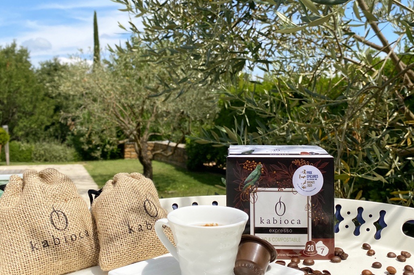
How do I calculate the import duties to export my products outside the European Union? How can I pay less of these duties thanks to the EU free trade agreements? What documents do I need? And what if I wanted to import products into Europe? The Access2Markets portal gives you the right answers to all of these questions and many more. It is capable of helping importers and exporters in their trade relations outside the European borders.
A valuable tool for European companies
The new Access2Markets platform is the toolbox for EU companies exporting goods and services beyond Europe, or importing products from non-EU countries.
It provides information on tariffs & taxes, customs procedures, rules of origin, trade barriers, product requirements and statistics. It does so for each individual product. This information is available for 120 export markets outside of Europe and, simultaneously, it provides EU rules, taxes, duties and requirements to import goods from all non-EU countries.
Every product is listed with a harmonised code that enables you to know which customs duties and national taxes you need to pay for. If you do not know the harmonised code, you can find it by using the product name. Furthermore, the integrated “My trade assistant” tool helps SMEs with low experience in international trade. With the harmonised code of your product and the origin/destination countries, you can easily learn about the tariffs applied to your goods.
Discover what’s new and how to work with rules of origin
The Directorate General for Trade of the European Commission (DG Trade), who created the new Access2Markets portal, has developed another useful tool as well: ROSA. This rules of origin self-assessment instrument helps determine the rules of origin for your product. This information is key to verify if your import duties can benefit from reduced tariffs thanks to a free trade agreement between the EU and the importing or exporting country. A large part of the platform is dedicated to EU Free Trade Agreements (FTA) and guides businesses on how to benefit from lower tariffs and other advantages that EU preferential trade agreements offer.
The Access2Markets portal replaces two other European trade platforms – the Market Access Database and the Trade Helpdesk – and addresses all the countries outside of Europe. This is a major step ahead as the Helpdesk only covered a limited number of countries. Finally, this new platform is available in all European languages.
Enhancing the Enterprise Europe Network’s support
Personally, when I have a new customer who wants to import or export products from a country outside the EU, I redirect him or her to the platform and go through the different stages together. By doing so, we obtain all the relevant information for every future commercial operation, including trade statistics for the concerned goods. I help the client check the product customs code. I provide guidance to determine the tariffs in force and the formalities to comply with and I check whether there is a trade agreement between the EU and the country of origin or destination. Furthermore, by using the ROSA tool, I help the client identify the origin of the product and I explain how he or she can practically benefit from reduced tariffs for the import or export operations needed. Finally, depending on the client's level of knowledge, we can provide appropriate training or coaching on the topics to be covered in greater depth as well.
In conclusion, the Access2Markets portal is a top tool that can really help SMEs willing to internationalise and it offers to Enterprise Europe Network advisers a new, enhanced way to support and advise their clients.
Useful links
Director Internationalisation at BECI-Chamber of Commerce of Brussels, Jean-Philippe Mergen has been coordinating for 12 years the internationalisation support services provided to Brussels companies within Enterprise Europe Network Brussels. He advises companies on access to foreign markets as well as on their development in Europe through the single market. He also puts companies in touch with companies abroad with a view to commercial partnerships through the Enterprise Europe Network.
The article was co-authored by Matthia Simone Sorrentino, Communication Adviser at the European Commission for the Enterprise Europe Network.
Related articles

We all love a fresh cup of coffee to kick-start the day, but have you ever wondered what impact this daily habit has on the environment? Read along to find out how the Enterprise Europe Network (EEN)...

Napoleon once said, "China is a sleeping giant. Let her sleep, for when she wakes she will move the world." The giant is awake now and has already become one of the largest economies in the world...

The entry into force of the EU-Japan Economic Partnership Agreement (EPA) on 1 February 2019, marks the start of a new era for the European Union and Japan. European businesses can benefit from new...
